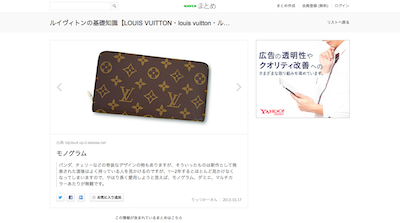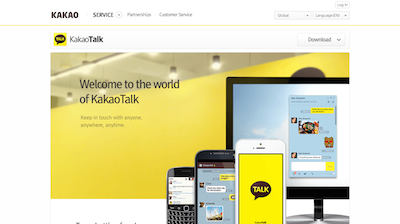Brands should tailor marketing strategies to use local Web sites, culture and platforms to appeal to consumers in Japan and South Korea, according to a new report from L2.
Stable luxury markets and technically savvy populations make the two countries ideal for mobile marketing and ecommerce. An increase in Chinese tourists looking to purchase luxury goods while abroad makes it even more important for brands to focus their attentions on Japan and South Korea.
"[South] Korea is one of the most digitally connected countries in the world with an active participation in ecommerce," said Ellen Lee, research analyst at L2, New York. "Brands should invest in offering local brand sites (with Korean language) and experiment with ecommerce, whether it's native DTC (direct-to-consumer) or working with third party vendors."
L2’s Digital IQ Index: Japan and South Korea Luxury rated the performance of 70 brands in Japan and 68 in South Korea on scales of ecommerce, digital marketing, social media and mobile to determine a digital IQ score for each brand.
Top of the charts
Louis Vuitton and Gucci were among the top five brands in Japan. Both achieved the rank of "Gifted," following in the wake of Japanese brand Uniqlo, which was the only brand of the top 25 to receive a Genius ranking.
In South Korea, Swarovski and Burberry made the top five with Gifted rankings, while German brand MCM took the number one spot and only Genius ranking. Gucci, Ralph Lauren and Bottega Veneta were among the rest of the top eight brands that received Gifted rankings.
LVMH brands Berluti, Céline and Kenzo received "Feeble" rankings and were among the bottom of the list in both Japan and South Korea.

Popular search portal Naver in Japan
A native brand site with a full translation into native languages is an important feature for brands to offer. South Korea and Japan are both ranked as moderately proficient in English, and Web sites with only partial translation into local languages can be difficult to navigate for users who do not speak English.
While many brands offer a Japanese site, they do not all offer South Korean options. Only 47 percent of fashion brands offer a fully translated Korean site, compared to 96 percent of fashion brands in Japan.
The L2 study offered a number of suggestions to improve marketing strategies in Japan and South Korea. In particular, the study recommends using local culture to appeal to consumers.
In South Korea, pop culture can have an enormous influence on sales. Brands featured on the popular soup opera “My Love From the Star” experienced steep increases in online search volume, and products that appeared on the show quickly sold out in local department stores.

South Korean soap opera My Love From the Star boosts product sales
Similarly, using local platforms can be especially beneficial to brands. South Korean mobile messaging platform KakaoTalk has over 140 million registered users, and 93 percent of smartphone users in South Korea report using the application.
KakaoTalk Plus Friend and KakaoTalk Story are two features that allow brands to connect with consumers using updates, events, promotions and photo sharing. Few brands take advantage of the app, however, and only Ralph Lauren and Swarovski are among the six brands to successfully use KakaoTalk Plus Friend.

South Korean social messaging app KakaoTalk
Japanese social messaging app Line has over 500 million users, and 67 percent of these use the app on a daily basis, nevertheless, only Ralph Lauren and Christian Dior are among the four brands to successfully use the app.
Ralph Lauren is one of the most digitally proficient brands, using both Line and KakaoTalk Plus Friend to reach Japanese and South Korean consumers.
Eastern essentials
It is important for brands to focus marketing strategies on South Korea because the country is becoming an increasingly major player in the luxury market.South Korea’s popular culture, brands and blazing Internet speeds are propelling the country into territory that has long been occupied by the United States, according to L2′s founder at the L2 Forum Nov. 10.
Whether it is a multinational beauty brand taking cues from South Korean labels or Seoul’s rapid climb up the luxury mountain, the Southeast Asian country is disrupting global dynamics on a few fronts. Another disruptor on the minds of luxury players is Amazon, the online megastore that L2 predicts will have the largest bricks-and-mortar footprint in the U.S. in the coming years (see story).
Japan is also important, especially because it is a popular destination for Chinese tourists looking to purchase luxury items that would be taxed heavily in their home country. The Japanese luxury market is witnessing a resurgence of interest by brands as the Chinese and Russian markets face uncertainty.
European and American brands have traditionally focused on Japan, but dwindling consumption teamed with emerging markets elsewhere led to a reevaluation in recent years. This is beginning to change again, as seen through events, exhibits and pop-ups from luxury brands across the island nation that indicate the market’s surging appeal (see story).
If they are going to succeed in these key Asian markets, brands will need to focus more of their energy on digital marketing in Japan and South Korea. The L2 report highlighted many areas in which strategies can be improved.
"Despite a high internet penetration rate in the country, only half of the Index brands in the study offered locally tailored sites (brand sites that offer local content or at the least translate the global page into the local, Korean Language)," said Ms. Lee. "It was also surprising that three quarters of the brands were not active on social media platforms in the country (including popular local social media, KakaoTalk)."
Final Take
Kay Sorin, editorial assistant on Luxury Daily, New York
{"ct":"mA\/nlRWn8via+jfClNZCd+r5TBs2A4I4YBWakbzT07utrIfupEQ+zU3g1DElZ5abD3Zbcmmcj73smpDRWgqZ\/PiHhhg1Mf53uoNWwZVeVb8OepnE\/fABmp2ilFC2TIYDCMQtWO3RUFpvYJWXxFTB+HvdSZxIwHZxiDEwqNc9GXewrxo89dvQvubVRB6EV6GT8Pts13YfhfK3\/4zmY83I+2wZUcLsxzqLfFdYB\/6Xhli7bq55ujrdj5J787giOUP4iibb9DbL8hmq1DqM+aJEGPNdgNi+QjEqCuX09SeO8kkkwWtB6L+Y7CtuU\/L9qucBnwKKiCTsc1JbL2ADKRZS9CDywn45A7YmMKm5b1\/bU45n01WXbhPS73UqQYMqDl0xDb2tKt9K7SLEXGSM0w7TK5oL1yA+oXiztkHIdfAZ1fhcg5e\/poHQ290KsgjXqEw15PClamuUkxmI2w6i+nVx09noGP6CdZGqMq2cxMpddwYlPn8dFBpj5GN97Mq7dud30PkzX1Za\/Kw6x\/oK25XkH17neDxkLGsbWlwil5g4+hzA2lml8PrWh+0s3aP2cD\/sSQ+YCcZKSy549bAGmWsjOns1l8IGzG5lm65P9EcqjPDHABY6QuPUfQiNWSIeQFE2dKBeK5MJFijNNtpgC+KwemL5bJtTHJ1NaRCQyxteyoQPDN\/e+rjpioxBU3N\/d9FWWrpczkuziPzYlYUavlvT20L9r2MgX55pspjNA59B8hcVsqIV5MqfV+YlVli85j8vyY1BM7xlCzX40HWGykZcWgqaerhn7+FsQxLvGV2fJTmXIliNQ0QfFwkWn8vO9GiW9kutC7rrCPTaAwAlg5e0oOpA3E\/7s\/Vd9hDCNEZmSBZZYGTYKHfCHmQG8IHP\/MQncvnLVu28icd+57iRqMFWCOvjMX1vANknnU87KvBr+CV3FAXLHkzp5Q9l45cdvO2ilgujRT3fEqzfpCGxPySmFcnztSmpnbSKT\/DtOVY2bjxw2JsrteIumU\/fzy0vav+x6Fx5iIqUABJV7eV1EJ8pX5QDxMXCSnvZBkrHf1SC5CzFOcJq3RUwCImAUz1dA8zr2O+cjHtR2Q4mK3J1bxBwzOlpHv95CNBjEBvujIXhrZspPJuk\/s3Xukz4l1HLDsMWNppgSuk8QekkpB0nsOMP1A44vL\/2gLpCtO6pjIbEkRkyjVjXlvWS4av6ufdcgT2YuinZcrREyvRN\/APygR00oU0zsOmoECaUFmieZRboWwTc43XK+zClRU9F8DX22ZnvHb7NTPay39UGSVKome5rWy0E224RrAfMOkrYRYWLUFJtPWRbBO6FoeYu4n04EMh4uIKXA+93WeY2F6Um8QZxmfRj+6g6Mhw3myhEJioqPyxTk9\/1ntMdYAFXYyMBdyB+O\/m7ENC\/b2U2t6b9R7E\/HES+Wszoe1E9Vctz\/nmFwN0LGaIFgs95M9AmVPyNrCmTwbGK2K9nQSWtLtoyaei4W6uhj9\/RN6jdjMU+t0t7YxChx47yxFqrEEBnyz4MNLLdQ5Jb0vJCZ0JOW8ZUtPe7pEmpAA9TO3BTVFug0EzbEQAc7wUfw748bNhP+Z1JvnBilMJfU6NVEjCXHYewGXZg6JG5m9BBfNu\/xaG6tRWr6d4MwEcEBPB+97XRTcuVe+9G7JSQEmORvb8PrmfAE8RycybufwVKAD6Z0e\/IcJXUWVY\/0dX7fqAoiAyNtJ3yO9Bnt1oyTvvNQwH03HjdiX7BuEH9s90ohsic6\/e0MqFCuwtNJM++2j++PfgHYQRQNJyv6C4WduWflYKIasTT0GyHo3SRiU2BKRXoxYWgpe4SB98txxiCCX+6J8VEaKD7bfMrGrNxMM+A9I9MaP1yqqZL\/1pxkHzuBHopfe\/g6z1lvFcr8Ak3NJrRyu10X4mwZtco5J93z0nA4uJtD+R+4k\/PdywgkC5W6LCgx3nefoooW0xjOnm5F5W6GIuiCj9W435m+25ZabQZVdzgHb9IbAbZbLE863hOLiSMf35MbxwSHh0VUHT+2J25mLIDYWoF91C0pqycUhgwwWnmDqadYiaXEh0TWnA2ENxy8ggVBKAgOcJHQgY\/X2Z1y0a+k8\/zd9OUKAtPk9Temgx1aiDNhbqrVxlEadlwkRkhzmzRU\/Vzf3izGcVVeg7\/W0ZhcogMBQzvDcxzIsbYVW7WTkbhBtxdE7FJFOTuFBMhN8eXO+aYM0K70Z3IKdiIbXN4ka5cQyv1OW7jvLzNLSvjJU7igh8EPmsRkjBAd3oTeEk0DuPCFt+ixXgl\/NfzU+vP0SeIkTcnVNQBD6nyWyt1QnvE3GBss5HX36t7j8ZiJG53pblfmNm\/6QYEZMCYQTD+6AAE0IdJ7wKZYHHpgBxdONte\/LAdRZq0SKOHHCOCR2wR7ShtqzdX2mOo5KRmMB7e67lfWJbPTswD6RzXtdkvDAIL9Oeqwpuaumu8fXjuqVGnAc0if7KiPZwR3AM\/Kwrtq7HyEYnc36gEttiE9QaB\/s3yL1QF\/aNyjr23dcFsAyN5UdppSawKNSuVd0MVZSsC3CdwN5pWKUZQtae\/SVJohB53L2MiQn\/RPq92k8V1nWVFWbcC+YQs1jFxWyjnE\/Dsr\/su9BBsWit6\/ADOv59rdpGsiKuqZkeZqAl68TaG7cI8NVCR0iCNpXPZXgNVLDNKiiPfnNJ0HgwOISFS92PUYW\/\/V6l+xxUI0iu4q3nU1ZjfoFwzFbOY9ovIAVaAiKViC9Po92Kemt4xmliZhxMwebAQSc0h9NGQe70+n9vuf\/fv6xFC68Ajj6ck+Te0QUitc19Fc3Af29g6FQOXPALXzYCW6K8bHyV1TJ7dFTUPJQ48WNabgtG4H9KSZrirIeMn9wUkIE9kQMoshRvnLHHTlLDxZnSuuEMW4E81TonQwDHa\/PnVTpUfRenbFLA8iYlhUS\/bAnx0JPWWs6EgWIQ7IyzOhrSgK\/MI6Sgu53WClZ0aWt+4w0n\/zq9nZiJVwVNaM7iIIL+Kj2Wv5uCdXiCmuv7dlASVRyAiUvU1oJfFz3N5CQewO5Km08EOtIp9ce5y1cmx2Ied4sVbLDxDkkIW\/4zW4l6InW1ldBOfVHHk5vNXyk7b5X2bWMg8ZXlx7rCXfi7PjXd60L8vh3sk7jSbhFc97bYQZFrS\/XT8b0Oc82zSaGa3Y8RU2LDuoB9YYr48BemI61fdBCzudgXy\/zYO01ca8XcuJddg407rbWBJJpsVuZjNNTR+egJOHI5DD3O5ZL6FUbdvfEZAM\/yViuk4AWA4+qT0gRTsZTs28KV1mGxTZPUCd9dktyyVUw+H2L7XRqrM3eE0YJp+qJnFED569TQOLwevGiRQ+cFMueg\/NNKXNVGT\/pjeiWyc6IGMY+sEgo5nUmIR+rOzdh5aWfEt18Qc\/RilNf0nkmWhwTzH\/pu7j+4FoJh4k+gnVwyyiNWax5NGGWLLq+xj4HKJ2PUbxduc1y9yjWkrnKk3IBjJH5XnP8Rupvefsbx0Xwvjtsndz+FJHftmZ6kMsM\/IntpliITDsmWngB2+0O5VBiiEmCu0bU7LTUhQcIQb0xzmFJmsB9eYjy5ZQbtpG6KUaVqTgBf8r\/hLz8XCjYZU1QLVmlHCwIouFpyBcUuvV34ZhksETo7T\/XlwWnl5PYvrDsw3VNro04czojS\/BeKyDL4Um9Va0hQhIhkelHUBJDYgbn3EA0Bwhip+9OpZfZ\/gZ2IErjFQQOn7XVb\/+ZRjMWNYJPJysHoWTh\/G8WWsdnVeT77EWr2JDUeDtZfTYEpJMvquvugwWtiAran3lrXBcFCfMqNcKynJO5FQVs+7CeiDxCWdafwKANqAG3E1gGlItE2KF8A3iVWfubNjW9UAOpz02h8T0j1gfUS9IJl9IhGYQX02exALjibtddHTbJPq1cuE39D+cXuhTBvX2fcAkjs1+Yd+OByAgyJl98G\/QzM7lKwCnYCWSqpVbuSIbfKrgFU3+p2pNKuAtGzXYCgaSted8PZ94CpTSvwvp+\/ghlA06J3hp5DuqCGEebASwuzG0I9qs74x42axCnKzva\/j7v2+4p\/jneFvnT5kx48\/EA2ZHOws8FR0YXZGHZR2Pd+LbgcSR1fSX22WM+8QKlVVIQbLsfUkoqMhHTC91oWIinn\/DRl44oIku4fAeHvtXiFc\/fGCFwo7RsnueXA040BCptBzO51FL3fZ9o\/XkeNQ4vAE09ylsOHFLfVfKLQdBENPxTzf0IwjgK01zq2werkjvfJPyeuYkX9pZWhTMQimhtuQGP17MbBXftKCisf0NzZkv4JEhn1U5CqpirPSj8w2ZglDiyLGkGWiWfxUSWxUCwSFLjiwS8QcmnemZ3o78B\/1XMaBBi6AB2xdlLyBmTGXKBmHQq7CxTux4yLTZopQ0mlHJ8ZXmDwhoyGnwI8njCfWvZvhpgBc5FMXgF8vSqOxtGKvPaJhbXGKL99aUrnW2V6Ek7Ewpomxgk3JbIwSlxZG0+4HT2U0EOzPpiOTZtb8Z4Be1ubimJ8rced5mHcrXoeLMmEGJjNRzhSVROtHAWSMeLQY6wjNsJemOrDxXbb3h22FN+VXgdOxImPhqlfOluMmbbb0Gje581Lp2aSL2YmAHv\/ZBNCFEyv\/iKdKz71bvGYK9IIX6idZ0g1RPTKF3fOaJ3lyhNyu01veYaVOO7juxwcdoA+QRNBD0C5w5UTFqBjSTRayOHqSpmBk6F9rESZzrW81czUg14oj8IOyqEqC1HCYdQSgzWaA8btxje0MR4K2s057KmkGRBoiV6ouIlrMQRSylhWXPjsedLBkoNGXlE3xZHur730fOZpR2NGmp7lZnjEFRLHMuKd6qY+9\/SWo6ptUkCuFSXRtjyBgvGbCxxFll96UY2CRaK2pYxBVNYNgUFl2ln3NJN9SrIbjkoDSyeC24GHu7v1R1l+t27CcTkvlpHy0nMGYjUhPLSzeeBNSdPAFggE+lRN\/069iOFUTubW5Cmj0uZhOTeDbQG\/XgjadwMq8P+i1Rz13dWxXVmvHxg+Vz0+YoGVRR4onN0KDwegSKK3OInkStNCNOIO2VdF5hbquosWKfrqBUhthfRYsJTscs3J00VCamnHQhWN\/ywX0kIOJc2ADwutM23yKnmqzRplaESOON6lWQzfNVhG3pVEd+Iv5Ud7j40Qgh8hrJcTdcfGE6xVOr\/ta8DTRp\/IxO9tc1Z9CsIdeucmMMHhsYeo1LbzLw1jK8MCwOa7JUgbiVxDbmfmVGI\/7NtZMHhSkY+ftoAOyFuxSpyDcememkT79hpLqZA\/yDkWltw2tUqkTkzici35rKPkrleGwzByJJV8S7Zupwru2Kd4dP8d3v8OT9ivp2toaQanlqkBCDFQeESN+y0h8j+XqGCzeuWyLX4gd0Zr1l7upNiJLnWT1RUjNYZONJRp6yimnCrsMGFUXjFYQHPkaPUkt6e9\/qEv3LXUnswt5W\/uk51SWFGxOyjPhpENIGeqmS5nqcONdrykc3XHVi6mUz2uEr6uUXWg970DbonF3ClIKtTBdD7rYVWPDtZ43RXV6jPznqmQZAXMo60s3Vo3XnQ14LDfOKI4tdmpAEFK8n2bzp9JduGfcUaP99QzS6+KY7G\/qzLJNQ6GHRlq+We4gSG3hybPUJ0tTH06XhNeedbEITupQ72kCr56q6DOwexfXbkRs5+mNeRFfDzzIQ7J\/cT3lvSeAWx9vDiPS9gsQZtR6Jj\/nAponLH5TnT7paWkdqPZJgr7i1Zw4Bjha84sR8\/Bwkt7EMLegLHRixxBnXgDJyDayGik0ygs71KQ214aaZ35EuuGsaIQsrxqb92xLxidGnzQue\/VhvqVCMmikxAKME082THcgO6xVdBx9GAJsvBya6dxgE\/itIS91f2joBndDJdhnZUi8ENbP6rxlw75tdqtwhsRHZFwKkKVdUWvdjYmSVansqaYVG+SY3uoQ08474RQdl7BoQjvl+LvEckPGVNSbV82ozi6q08Vm6Ww70yeBLwsMxyMxuMSKUocrOyFCXEBFt+IE6cIF7NRZUyN1gUNlVKmTLDFnF\/qdH8y5PpmG\/IG5Bno0Mx9JC0RTUs\/jmpPpm+cjG7Qf++SgrW2DNXQzhGPlrwELOLBobRHGapYOhHW3YGT+6U1MphvKjYlUjoBsg\/FXF0HAUChgrTpHYEuRUIMc\/5YWhaE4k6E96Ek12729drAWBLg+YyZrm1R5A\/cngpcShP8q0b0rGX7p5jSkk32jfQIJMv8I4vdnH185uaiZTRdk\/f0CL2HphVCikSuC9D6rsMAEX3yuXCsezL7+Wp+ZwB9IxvYrA6V4MoApiHwXEhdeaPQGEwUzwrNzEnnPxYI9lFzwhwsKt+AyOFl3I0UEBb6EFiLr0VtDVz5sWG32T2wBSFnC\/texsoQ5u+Y1ANHbJ+bVB28rqnsm6vYGFwOMGY2t\/iRYFXr3MDRC5e9Z349Fwa9FdmxFThH7wXLsLKn6cMJ387MPe\/7ZrvPg3MKGQsRz2JHsPWdtaTXB+foCx46qPvUKvMlk06VWJg9CfE23XDdYv9j5FFGpW4\/omGquYoVS4wN5q3Rr51EnzTIBy+U7sqf2Irq3ReL70jhJtQHwAS6vG3sqjQzHq7z0tSU4oAV7ybbLXSLPYyY8OHhkVLUPteazQxeEhCaftXOGTtwaxYv4rq+lOdY71kfFDzbiMrdd9XQV0YHAte3Fy4ND6ao+HFFa3DFP5irA9oWY3fc2twdBqBAyRTcOcBy36fYToUZJgJU5zK+yry9hmFxIdnabTljHXHF6ZI4+iPAuWPtzGewOWnq5i9LlcL6rU5oEIUjryfHzLkJsCZawuZnMJH6yNvsIp83cu\/C45X801oZpKiMTtVaJmyJ0tdcUjdxykpCPJU7QSks4S7fQjvysN6H+vyCbXqTv2wo8DqgSvAMfzE+T3NK4\/6xhQVuwm1xdzGLDaqAsbOfFaDK+TCISM6BcUM1wXN68Tvr3wtAG7qbprm8E9FtQRodq7yu4iNm\/JyYAVa6T3t+BgooJcVSPu31ATklibNt7Go\/1XJ4eaDB512xAZ6DV6L8azphjaQeZ29hheTFVFa0epNJFYhwm7Ql2bxNfcNGZ6S0B\/+uBH4Ugzh6ItAAdf4MlZVhrEJcjJJU3ND5+3nYS89NpCwjc2oJUfK6oX7\/TexbYgwn+cvNRla0qQdhVzk5Il11A+F\/VVsmzUd3s4TwUtb9+ge1uvdi6PGohu0gneEu7saq0xI\/5RMg+vtxisR7DrOziWq0giu7BNKjUbTtacWF2pvalKVJA4uFikYXMfqa6wSMO6sfxj6j7DunOPIJqH0v\/fUOl7kVTdJ0Kw90pmRBryUrBejNjUSFT4rwAi1vmRfnxXMluWOX7lG2lUs46egQAzJBUxNZxxyK2b3KhE2RdRxNzICwcUVogrSqujYoij35ZqPwQ58tRiSRzGGVGOuzxTwyFa+f9kfjmreiJnbkzilMSYbIh7rtBa3digIB97jEyHFWCESRpS19znDbh1BIUz9bVGSaUPf6E5pvRvPRTUBWTl96r5euFT63lN31UjXkWrlqOcuLmM8wwselkhNLkv81dleqDqAM8e3pCRSKS6inKxzrawtUfjyE54Jtc6uk8uuCLfyDXVPX\/pQopi1wma+AGXSZbn4ndVsdK0r9fhMjZxQw9PB2vPVzJBkIMKcYYTHhcw0EXW+7HOxYCLaUs3J1WK7Ty34EIbKSF2IoKio5NYzdyHtk1\/czyx\/C9\/nMsD79\/rkNEvRsy3FHHUlszUelU4YwF7HO4K7sDS2xWkLPH1yGfvNLGJx8Y47zHz6EdA5rWTY0P6rh7h6yNWZTu+vr1aC+kJFd2E3mxIRzsruUazKETqM8www6MqfUGSbXp5kXJ8cCc6qNy+ZUjy\/3WnAR373GGRHEZqSPCnf\/0I2K6ypxpkbNFP1RZg3IpHJkb0OnM\/gl8kCd1pI+3tE9l853Pu6tOgUnds318z99oDgyGFO4l43lHofFl7zOGv9RrdcKj3nw\/U\/50g0xgJquDA4zMbYGatiHUi6DJ1OkkF34\/30vNCBf3VYYwAInRsVRVJGMZv2GATqYPU9J1PBAeCUEQu6COawXTVZ4SDps3R8h6CBWaHIHUMELT\/SXfnHZM8MTcfL6Afx6ttSgePocicTeUXddtHKXybSdXrfZHBxZiEaKzVHcVBV7QaxOFkSswBRmXLKidXwE9y4Q2r5Wntg6JMXXl9d\/p98\/xQb8PBtBDkD2XBPCMlsMyZtdxLQFFQokpE74CKNdatpAilFAvKxYbnEIuatKdwqe1fXJZPxvGHvNjW5AYe9wtTJjs8dXRaj\/ogl8d7K2gJc1TfePZ1+Bn\/cUDIa+EYnluFAIpzUs47J7Bd5X8+5RRGdgaaVaJke8W5MdEz\/ehQyUjlMnW+baTPv3bMvMNz\/N4Q70MM8ncJJWLvKA0lfAIdxZT9sxJ0OCgcagiegk5i3awgV2s4uPJ3OTwXpqy\/A5ho\/0N7RRsiCKVDtyl2jJugbdXJvpdzQTAEPk+bUmEpYW3GLnKUfg2uuIeLzlxCYJSPnbPL9Bj8SvavAu8pIxmrH\/Pnlfy8cZOzX\/FiVWeCor+VtlwtePvGOQFFOUJtfMSP3RzFsnF9DzVSX4+xryHSkDuaSFAJDBySh2aCcg29dgu+uO3gWOOxc2oGKE0EheTQgNnP4+6AHY6awvrat\/eMrz2PgJKr+\/5mVixBVcSO0d7MnRuucILkH63Cad3TLzjTwX+rM\/eaFPj6QLVQ166\/aDuwPkSuIKj\/ZO39m42i\/2QwD6NCrZMHnJh5UzbXaLfi4AZtn\/CN9vIxxxndnlPS+LRGUW3wMuxTEKJeTN9nP4PUXJLR8UM9Yil7OuQ3mnCaMjQ+D9ZapcPDMwnOotXmwWjEyElyH\/Q\/\/u0RBRwyMrbAiSmmM4ZTi0BdBmNEF\/xfB0vk0Dxp0KVQnjJU\/UqkGJpDzMQIwUCatLksTyB+zV0WKn60jd4sG4K00Ux6Dhur1wg1RYM96MKbhK9FRM0ANt89c4re4Kji9TPkhJkndP4Oune\/A6M3NbkkWZqv7JoZC0Y\/dcZtdt3Y7bv1x+u1t7yGO3IqU8K\/W+\/uvQp8ygN+i4zLJNdBNt6Ie0sqEsp4yQ\/WsTMfvL3rQDuvwN3csOF2lGC5\/UVMgrm5yTWXz0oABvQAOlXzvG0EwHIJEh7b2RP5841osKueASpsgKrxTDfCHVaWP91Vo\/Jx2\/KkzD626+nX0h5m7ysnVrgGlKsxLdvyCGrMi2+gBH2HhNOKljwQBTEaaSHKKirmLj5ZMvZHsI8Ou1eTxrifbvwVyjgWDxbZ0Ge6PNVAYuXwauM\/WN5N8xXrUWbP8vKIvR74iP4qtPgRcPCFtJV6Qog5YfynYHwMYeNHOPIaco3uiJpPiUXHB59CHtxBW\/p21TVlpFWbupu\/6C13aYfsraqbgSaUd8G9Elwrb5CAJp2SoXgWQItAP1DtX6D2IuSGYClXZHvnjDXl\/f+AJaUo9tekufE5coRh3l3dM6FZbMfeA6K4jJZzdFvxJ6m7mVvSd7AxvDySYEIjkmYG2u\/RHz5GzN\/aXzOV1jUVp4zVl8z+qLwZCZ6KNQB8n0JXC4ul7FpsvHGs8Tg5TJcqIEBz9TWFfaOMW9DT1gNGkP8DyhZpjhWEFqRIl\/pMV1kQE0hWpcq4yEX+6H7k7OivWNdrsN5gGuuEB4Gi6D73D5FsE5SJ0E\/fCtW80XU5cL1+Sv2RkCE8TrLypW94Lkf19hHjqxW8K5Dx8cpuAJ1uInJLQho20i184kghfzpHnO0FLTPWO4RQQCTiK\/Zx4WIW7d5rqtqbvCEbo4Bn\/j2FGSrCz2RqQbrnEemrMSzXnvNXf6xUdV9HbPdQoeE3oaDnLacac+1MM0qyw4bxlLRx2NBNGb22UT0cnsFh\/+lldbcQXEkO0lSUhml4ieQcPpRRDKBduRV6dwxNrwD5uiQrBim8bvkzovOKG4g4lPAlz3AJDjokjDiHhGr+8wMdU\/8oAPAfooLr5S9BFfqVOSgEfMJyYxeWKmtmvBakaoE3vupK+qd4BuHmT96lglL5BkW8v5gwZY3FExKzBKE75M\/+tmt8d12UvX+QXjWkIhWb6OiOseVM364elM3nApP78tvE5VaY5rO4MPT25HmsLFbtAcV+i89UAJ2VBRDThor0cm+w7t09iWJD8suxxvR7C5p8OJg1oaJCWT+MdZEYrSKsWgodYEHgUsnhl4IcKuGfj9UlUbb6UOq24gJbWVPfonZ5t01YILUnVRYX6myItzDO\/1p\/SIzNxfCVD+TSJO3HQ71DSyaVoxpsGjT\/R+U0vUb+NzHXAWt65U+ZE9iTdhq1X+veoQ4ncY0XFsi0dJqTOZaO5Bmjiw7j\/tnkvjXLt0Jd648heYw\/J+tRSUGJhPJvtaM17WEthNF7vpwlorpIArMTPWyHBo9HGpZsjXwlt5CzV7RAPQ0n2j4Fdk0ayswGHdxb2nWcG0W9akShZ7fStKP8wX0QC0GK5sFqB7+7FHuzKv5PvJ8tULSkyeHjA7kdvpCVhoZ3NBK\/2r4EuPa3bZt\/gIyvI+3Jglz5txKRb8a1Wc77GKTldVYO5NKAcz0dR6AfI2b89WldxFYHDCwpZUTDTtn68iqYQEWSbxN8ufAxMEWP\/D5Y0Ql+aOUZ1X3g26GxIcMZu454LuYMeghnT3XKJSHVYFMw5uZ2LA\/CxsZoCGAcXawLaLifQVWRDwehkDziVwuTUdfly381\/mZBhDSuAQ5YRNxMAGxVmW5j7GOVboyVcx9jL+onHLYVyr+1CXDDiZrDGJSfrwfvlY+Ophbl\/US1x98BJRdOW3btZkCWShztMgxlPjD392hGDlV4JrYkLeZUQkBcekRAXZxxBIThV8kTXPFlkDAruaNL4F5wq4TNIiAHpwXyqyRLzW6W67C53FRi2Emkf16ZbOz68KTqmM2eSMq+ZzLcy0VMIZx8Qg7tB\/w1VWsKrjbiRpRcgaKQpqRktrdakhswE2nmx\/hPuMzgpUzcbPRNV4IQ4Rv7POtlJQ8+z9FbDkDHrlDudg5N\/F0dZBNb0\/TTxS0LRJAQj07P4bV3xVUHNoROAKns257PNjDTSTVKlVY6ZkEGrspaLPgJOX86Ql0eHZhxtaeNDz8tr+B5OdarWXmk0rR5WA2dx3YdxzcpyLSPYMvWSnvwzHNNws1UFZlgqCaesh27sqpWuaeEw==","iv":"e3eaffbeb65f797d3c6601e976beb68f","s":"dc039c82e9376966"}

 Korean actress Jun Ji-Hyun frequently boosts sales
Korean actress Jun Ji-Hyun frequently boosts sales